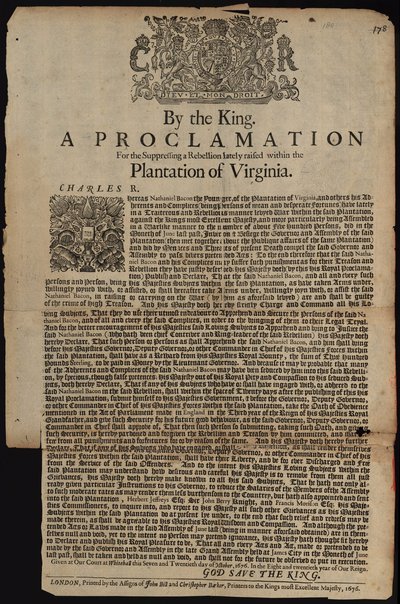The Rebellion Spreads
The Rebellion
Nathaniel Bacon gained widespread support from indentured servants and enslaved people who wanted to acquire their own land, and Berkeley declared him a rebel. Berkeley offered a pardon to all members of Bacon’s militia, excepting Bacon, if they stopped attacking Indigenous peoples. He also expelled Bacon as a counselor from the Virginia General Assembly.
Despite being a wanted man, Bacon had become so popular that the Virginia colonists now elected him to the House of Burgesses. Bacon arrived to take his seat at the Virginia General Assembly meeting in Jamestown in June 1676. He intended to ask the assembly for the authority to lead the colony in a fight against the Indigenous tribes, but Berkeley kicked Bacon out. Bacon fled Jamestown.

A colonist taking an Indigenous man as a prisoner.
While Bacon and Berkeley struggled for power, the Virginia General Assembly continued to write new laws that affected relations with Indigenous peoples. It declared war on any Indigenous peoples who had wronged the English, stated that any Indigenous person taken captive in the war could be enslaved, and called for the Virginia colony to raise an army. The assembly also declared that the governor (in this case, Berkeley) had the authority to suppress any rebellion, a direct reference to the actions taken by Bacon and his militia.


